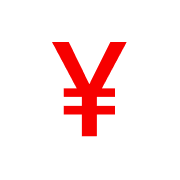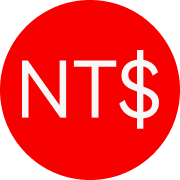


CHF information
About the Swiss Franc (CHF)
What Is the Swiss Franc (CHF)?
The Swiss Franc, with the international currency code CHF (Confoederatio Helvetica Franc), is the legal tender of Switzerland and the Principality of Liechtenstein. The term "Confoederatio Helvetica" is Latin for the Swiss Confederation, reflecting Switzerland's multilingual diversity, which includes German, French, Italian, and Romansh. The currency symbol for the Swiss Franc is either "Fr." or "SFr."
The Swiss Franc (CHF) is issued by the Swiss National Bank (SNB), which serves as the central bank of Switzerland. Established in 1907, the SNB is responsible for the country's monetary policy and for ensuring the stability of the national currency. Its primary objectives include maintaining price stability while taking into account the economic situation of the country. The Swiss National Bank is responsible for issuing banknotes, while coins are issued by the federal mint, Swissmint.
What Is the History of CHF?
The Swiss Franc (CHF), established in 1850, marked a pivotal moment in Switzerland's economic history, unifying a diverse array of cantonal and regional currencies under one national standard. This move was a direct consequence of the Swiss Federal Constitution of 1848, which centralized monetary authority and paved the way for a cohesive financial system. Before the Franc, Switzerland's monetary landscape was fragmented, with various regions issuing their own thalers, guilders, and other local coins, complicating trade and economic interactions. The introduction of the Swiss Franc, inspired by the French decimal system, streamlined transactions and bolstered economic stability, offering a uniform currency that facilitated commerce and integration within the burgeoning Swiss Confederation.
Over the years, the Swiss Franc has undergone several transformations, reflecting the shifting tides of economic policies and global standards. Initially pegged to the French Franc, it later transitioned through various gold and silver standards, mirroring the prevalent economic practices of different eras. The 20th century, particularly post-World War II, saw the Swiss Franc emerge as a symbol of stability and security, underpinned by Switzerland's neutrality during the wars, its resilient economy, and conservative monetary policies. The Franc's reputation as a safe-haven currency, sought after in times of global economic turmoil, is a testament to Switzerland's strong banking sector, low inflation rates, and sound fiscal management. Today, the Swiss Franc stands as one of the world's most stable currencies, embodying Switzerland's economic prudence and the effective stewardship of its financial institutions.
Notes and Coins of CHF
Swiss Franc banknotes and coins are renowned for their distinctive designs, which reflect Switzerland's cultural heritage and history. The banknotes are particularly notable for their artistic value and security features. Coins come in denominations of 5, 10, 20, and 50 centimes (cents), as well as 1, 2, and 5 Francs, while banknotes are issued in denominations of 10, 20, 50, 100, 200, and 1,000 Francs.
Why Is CHF Considered the Most Stable Currency?
The Swiss Franc (CHF) is widely recognized as one of the most stable currencies globally, a distinction that stems from a unique blend of Switzerland's economic strength and political stability. At the heart of this stability lies Switzerland's diversified and robust economy, characterized by key sectors like finance, pharmaceuticals, manufacturing, and technology. This economic diversity shields the country from sector-specific downturns, thereby lending remarkable stability to its currency. Complementing this is Switzerland's political landscape, marked by a longstanding tradition of neutrality and a stable, democratic government. These factors not only foster domestic economic resilience but also make Switzerland, and by extension the CHF, a safe haven for international investors, especially during global uncertainties.
The Swiss National Bank (SNB) plays a pivotal role in maintaining the CHF's stability through its conservative monetary policies aimed at keeping inflation low and ensuring price stability. Switzerland's banking system, renowned for its security and privacy, further bolsters this stability. Additionally, the country's low debt-to-GDP ratio reflects a strong fiscal discipline, enhancing investor confidence in the Swiss economy and its currency. The CHF's role as a safe-haven currency is cemented during times of global economic distress, when investors flock to it for its reliability. This demand, coupled with Switzerland's significant role in international trade and investment, particularly in commodities trading, further solidifies the Swiss Franc's position as a paragon of currency stability.
LEO to CHF conversion rate trend
Conversion rate comparison of various exchanges
| Exchange | Price | Maker / Taker Fee | Tradable |
|---|---|---|---|
Bitget | Fr0.0003109 | 0.0200% / 0.0320% |
How to buy LEO



Buy LEO (or USDT) for CHF (Swiss Franc) offers
| Merchants (trades/completion rate) | Price | Amount/limit Low to high | Payment methods | Zero fees Action |
|---|
Sell LEO (or USDT) for CHF (Swiss Franc) offers
| Merchants (trades/completion rate) | Price | Amount/limit High to low | Payment methods | Zero fees Action |
|---|
What factors influence the conversion rate of LEO to Swiss Franc?
LEO to Swiss Franc is falling this week.Conversion tables
The exchange rate of LEO is decreasing.LEO to CHF
CHF to LEO
Today vs. 24 hours ago
| Amount | 16:51 today | 24 hours ago | 24h change |
|---|---|---|---|
| 0.5 LEO | $0.0001728 | $0.0001827 | -5.41% |
| 1 LEO | $0.0003456 | $0.0003653 | -5.41% |
| 5 LEO | $0.001728 | $0.001827 | -5.41% |
| 10 LEO | $0.003456 | $0.003653 | -5.41% |
| 50 LEO | $0.01728 | $0.01827 | -5.41% |
| 100 LEO | $0.03456 | $0.03653 | -5.41% |
| 500 LEO | $0.1728 | $0.1827 | -5.41% |
| 1000 LEO | $0.3456 | $0.3653 | -5.41% |
Today vs. 1 month ago
| Amount | 16:51 today | 1 month ago | 1M change |
|---|---|---|---|
| 0.5 LEO | $0.0001728 | $0.0002492 | -30.66% |
| 1 LEO | $0.0003456 | $0.0004984 | -30.66% |
| 5 LEO | $0.001728 | $0.002492 | -30.66% |
| 10 LEO | $0.003456 | $0.004984 | -30.66% |
| 50 LEO | $0.01728 | $0.02492 | -30.66% |
| 100 LEO | $0.03456 | $0.04984 | -30.66% |
| 500 LEO | $0.1728 | $0.2492 | -30.66% |
| 1000 LEO | $0.3456 | $0.4984 | -30.66% |
Today vs. 1 year ago
| Amount | 16:51 today | 1 year ago | 1Y change |
|---|---|---|---|
| 0.5 LEO | $0.0001728 | $0.001216 | -85.79% |
| 1 LEO | $0.0003456 | $0.002432 | -85.79% |
| 5 LEO | $0.001728 | $0.01216 | -85.79% |
| 10 LEO | $0.003456 | $0.02432 | -85.79% |
| 50 LEO | $0.01728 | $0.1216 | -85.79% |
| 100 LEO | $0.03456 | $0.2432 | -85.79% |
| 500 LEO | $0.1728 | $1.22 | -85.79% |
| 1000 LEO | $0.3456 | $2.43 | -85.79% |
LEO price prediction
What will the price of LEO be in 2025?
What will the price of LEO be in 2030?
Other crypto price predictions
 Bitcoin(BTC)Price predictions
Bitcoin(BTC)Price predictions Ethereum(ETH)Price predictions
Ethereum(ETH)Price predictions Celestia(TIA)Price predictions
Celestia(TIA)Price predictions Solana(SOL)Price predictions
Solana(SOL)Price predictions Worldcoin(WLD)Price predictions
Worldcoin(WLD)Price predictions Bittensor(TAO)Price predictions
Bittensor(TAO)Price predictions Dogecoin(DOGE)Price predictions
Dogecoin(DOGE)Price predictions PepeCoin(PEPECOIN)Price predictions
PepeCoin(PEPECOIN)Price predictions Pandora(PANDORA)Price predictions
Pandora(PANDORA)Price predictions ORDI(ORDI)Price predictions
ORDI(ORDI)Price predictionsBitget Earn
APR
Purchase other cryptocurrencies with similar market cap
Popular LEO conversions










Popular cryptocurrencies to CHF










Discover more cryptocurrencies
Latest coin listings on Bitget
FAQ
What is a cryptocurrency calculator?
How does a cryptocurrency calculator work?
How accurate is a cryptocurrency calculator?
Can I trust the results of a cryptocurrency calculator?
Can I use a cryptocurrency calculator for tax purposes?
Can a cryptocurrency calculator be used to convert one type of cryptocurrency to another?






































